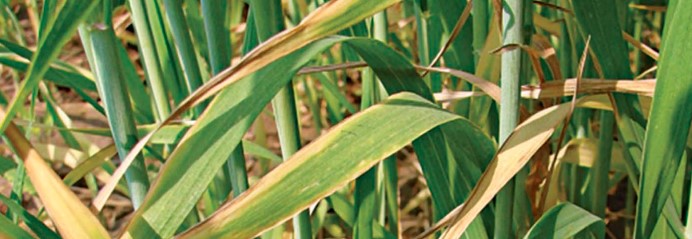BIOLOGICAL Farming, with the help of natural soil bacteria and Fungi, is growing rapidly and in the current crazy
climate there is more and more interest – after all, we can now use these little bugs to provide Nitrogen, Phosphate
and now Potassium. There are also products that will stimulate root growth and help to reduce disease pressure.
Written by Robert Plumb

I have been working on the Biological side of farming for 20+ years; before that, I was a fertiliser blender in mainstream agriculture, so over the years I have seen a few changes, not least the demise of companies like ICI, Fisons, Albright &Wilson and lots of others. In those early days when fertilisers were made more commonly available, many fertiliser companies took soil samples and simply recommended their products. It was very confusing for farmers as the soil results given used a range of different laboratories many using different extraction methods, this meant the farmer could not easily compare results.
In the early 70’s the ADAS (then based at Cambridge), asked for a meeting with these fertiliser companies that included ICI, Fisons (now Norsk Hydro) and about15 other companies plus advisors; they then worked on an extraction method for a common soil analysis.
Now bear in mind these people were there to sell fertiliser. The idea of replacing what you take off came later and sounds very good but is it really necessary? Little notice was made for the use of manure, and compost was unheard of. At that time fertilisers were quite cheap and a rule of thumb was a tonne of Nitrogen was about the same price as a tonne of Wheat, ie about £20.In fact, most compounds were at a similar price and Phosphate even qualified for a subsidy, as did all lime materials. It was a pretty simple system and it certainly sold a lot of fertiliser. But was it really necessary? Many of our long term friends have not applied any P or K fertilisers – other than a bit of compost, for a very long time (20 years plus) and their soil levels are pretty much the same as when we started, and yields have been OK. They are not trying to grow maximum yields but do they actually make a profit?
Levels of K go from low to high
Potassium (K) is extremely important for crop health and yield and at Soil Fertility Services we like to monitor the plant response with regular plant samples. We found that last season’s K levels – in all crops, were extremely low. No surprise from a dry soil. With plants unable to pull it off the clay particles and exchange sites, we are now being told that straw K levels were high! Potassium is important as it helps a plant to regulate water uptake and the opening and closing of the stomata; it is also critical in producing proteins and most wheat protein levels have been low.
Plants actually need similar amounts of Potassium as they do Nitrogen. This could be up to 200kg. I have never seen one with that level of Potassium at the main stem extension period, but now we may be able to help. We have developed a K fixing product. Similar to the N Fixing product Bio-N, the beneficial K fixing micro-organisms will release around 50kg of K from your soil’s “locked” up reserves, directly into the rhizosphere where your plant system can easily take it up. It may take two applications of 10 litres to provide all your crop’s needs, but it will surely help to overcome the problem of Potassium shortages.
We have been measuring ‘total Soil K reserves’ and find between 6,000 and10,000 kg/ha in the top 10cm (4”) of your soil. Most of this K is in the lattice of the clay particles and is considered ‘unavailable’, but we can easily find200 – 300 kg on the surface of the clay fraction that can be made available to your crop with the help of the Bio-K.